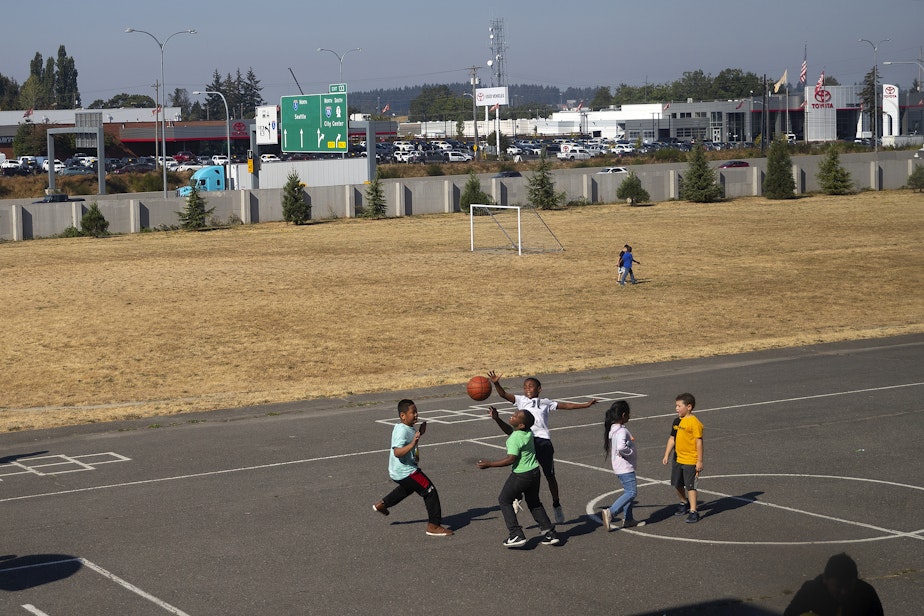What happens when a school levy fails?

In February, the Kennewick School District in Southeast Washington ran a levy on the ballot in their county elections.
That levy didn’t pass.
Kennewick's Educational Programs and Operations Levy was meant to replace another that was set to expire.
"A big portion of the levy goes to health and safety related items, things like our school resource officers, additional personnel, nurses, mental health therapists, drug and alcohol prevention services, psychologists, security personnel," explains Tracey Pierce, superintendent for the Kennewick School District.
So, they tried again in April.
"We scaled what was going to be a four-year replacement levee back to a two-year replacement levee and scale the amount down as well," Pierce says. "It was about a percentage point away from from passing, unfortunately. So, we're faced then with, for the budget for the 2022-23 school year, a double levy failure and a loss of that revenue."
At a basic level, a levy is a short-term property tax that generates revenue for the school district.
Sponsored
You may have voted on whether or not a school levy should pass in your own district last week. School districts in counties including Walla Walla, Greys Harbor, Yakima, and Mason were all looking to either replace expiring levies, or create new ones in their districts during last week’s election.
In Washington, the state is required to supply school districts with funding for what’s called “basic education.” The amount of funding a school district receives depends on a lot of factors, like enrollment levels, the number of special needs students, or how many English as a second language students there are.
Most districts also receive some federal funding.
But that funding doesn’t cover everything.
The Lakewood School District in Snohomish County also failed to pass their technology and facilities levy this year.
Sponsored
"Things like the fire control alarm system upgrade that we really need to do at some point. You know, we had roofs that we were going to replace," says Lakewood Superintendent Scott Peacock. "Replacement of some carpets that are worn and and need to be replaced in our buildings, We have a boiler at one of our elementary schools that we've kind of been operating on a wing and a prayer for several years now that we're going to continue to work with and nurse along."
Both Pierce and Peacock say their districts can compensate for failed levies, to a point. They can pull money for that new fire alarm system from the general fund, or from savings.
But, that might mean cutting something else the fund was meant to pay for, or losing an important savings cushion meant for a rainy day.
And they're facing these tough choices because, under the state's definition, "basic education" doesn’t include facility needs like new roofs, carpets, boilers, or all health and safety needs like nurses and mental health therapists.
Washington State Superintendent Chris Reykdal says the funding picture is complicated and inherently problematic for rural districts. He believes it needs to change.
Sponsored
Earlier this year the superintendent held a press conference saying he would ask state lawmakers to make changes to the state’s Common School Construction Account. Those funds come from timber sales and other revenue generated on what's known as “Common School Trust lands.” The money is currently used to augment funding for school construction and capital projects.
It’s a source of non-levy funding for school districts like Kennewick and Lakewood.
But right now, Reykdal says that money often doesn’t go back to the communities where the revenue is generated.
"The current system of school construction in our state relies on local districts generating some of their own capital as a match against the state," he explains. "So, you really aren't even in the business of school construction until you can raise your own local money."
And he's not the only one identifying the pitfalls of asking voters to fund schools through levies.
Sponsored
Washington Senate Minority Leader John Braun represents Washington’s 20th legislative district, which includes parts of Thurston, Clark, Lewis and Cowlitz counties.
"My one bill from this year earlier this year, 5922, proposed that we would take money and we would lower the levy, but we would backfill the state money," Braun says.
His bipartisan bill proposed adding an additional $3.5 billion to state school funding, and capping local property tax levies for education at $1.50 per $1,000 assessed property valuation, instead of the current $2.50.
Braun says the goal was to create a more secure funding source for school districts, so they don’t need to rely on levies, a form of funding that’s often inconsistent or inequitable.
But that bill didn’t go anywhere. And Braun warns that public schools in wealthier areas like Seattle and Bellevue will continue to benefit from the status quo system because of their high property values.
Sponsored
"And the poor parts of the state, they won't be able to get there," he says. "They'll just have less money."
He predicts if school funding continues down that road, it’ll end up where it’s been before, in a lawsuit.
"We've got to continue to hold levies as low as possible and provide maximum funding from the state. That's our responsibility," Braun says. "And we know, know absolutely, because it's happened to us twice, if we don't do that, eventually we'll become over-reliant on levies. There will be a lawsuit. And the Supreme Court, whether it's a right-leaning Supreme Court or a left-leaning Supreme Court or a down-the-middle Supreme Court, will read the plain language of the Constitution and say, 'State, you're not doing your job.'"





